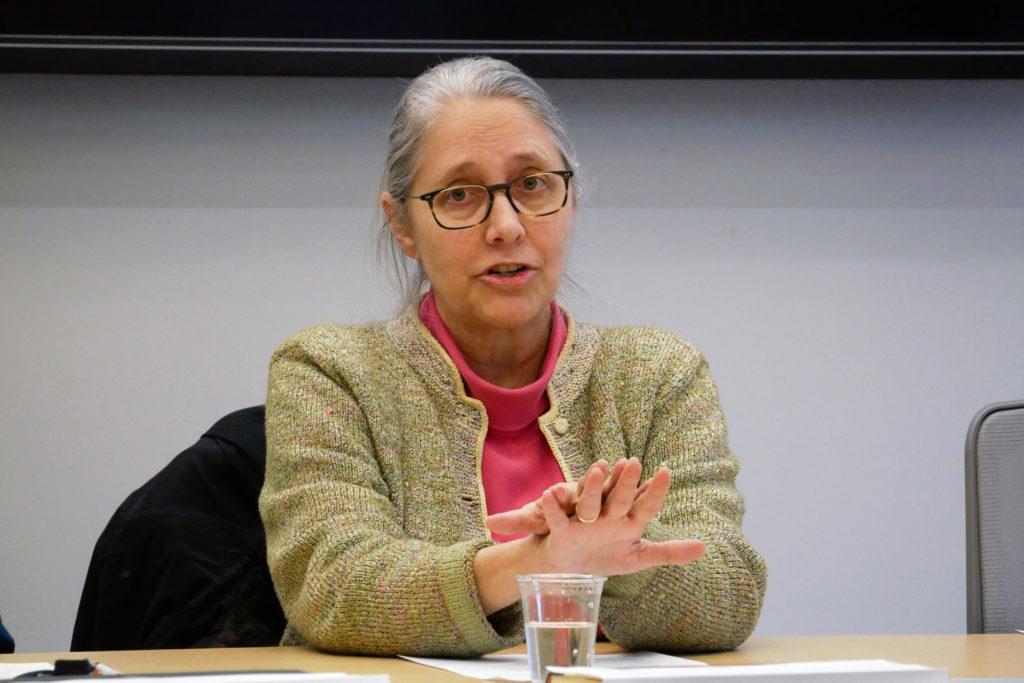A new center for women in the School of Engineering and Applied Science hosted a panel about communication in the workplace Thursday.
The panel, which featured students, faculty and staff in the school, was a pre-launch event for the SEAS Center for Women in Engineering, which will be officially announced on April 26. Panelists spoke about their experiences as women in both the workplace and classroom and offered tips to become more confident and own successes.
Rachelle Heller, a professor of computer science and the event’s moderator, recalled a meeting she attended early on in her career at the University in which a former faculty member looked around a room with two women in attendance and said, “There is just too much hormones in this room.”
Heller said her experience in communication in engineering began after that meeting. She said that since then, the workplace environment at GW “has gotten much better.”
Kim Roddis, a professor of civil engineering, said women in the workplace tend to take passing comments too personally. She encouraged women to try to overcome stereotypes by studying how other effective speakers communicate.
“There is a difference in how engineers communicate versus how non-engineers communicate that I think is as profound as the way that, in American society, how we expect women to communicate and we expect men to communicate,” Roddis said.
Zuri Lawrence, a senior majoring in computer science, urged women to practice public speaking and “own what you have to say” because women often second-guess the validity of their opinions while presenting them.
“Women tend to start with, ‘I think this is the right answer’ or ‘This might be the right answer, but you can correct me if I am wrong,’” she said. “That is a precursor that tells the person that this is probably not right anyway. When you already assume, that they don’t think you are right it diminishes what you are saying.”
Megan Englert, a junior majoring in mechanical engineering, echoed Lawrence’s comments, urging women to “go with your gut.” She encouraged women to remind themselves that they hold their position because of their merits rather than luck.
“You are here for a reason,” she said. “You can do what you are doing. You didn’t just get here by chance you aren’t just lucky.”
Dawn Ginnetti, a professional adviser in the SEAS Office of Undergraduate Student Services, said women’s tendency to think that they are lucky instead of hard-working detracts from the efforts they put into their accomplishments.
Ginnetti said women should “constantly back each other up” and support each other’s voices in the workplace.
“In SEAS, we have such a great community, and the women here are in leadership roles, and I can tell you from working in other places, that is not the case,” Ginnetti said. “This community here is amazing.”





